Sushi Issei – A Friendly Omakase Experience with Great Value in Kanazawa
As Kanazawa is famous for its abundant seafood, having a sushi omakase is a must for food lovers when visiting this city. With many options available, we decided to dine at Sushi Issei, and it turned out to be a memorable dinner that offered great value for money.
This restaurant is not far from our hotel, Hotel Sanraku Kanazawa. One of the reasons we chose it was its reasonably priced omakase (13,000 yen per person), coupled with solid reviews about both the food and the service. Besides, it was easy to reserve our dinner via TableCheck. We weren’t looking for a top-tier, hard-to-book omakase. You can check our guide on restaurant reservations in Japan for more details.
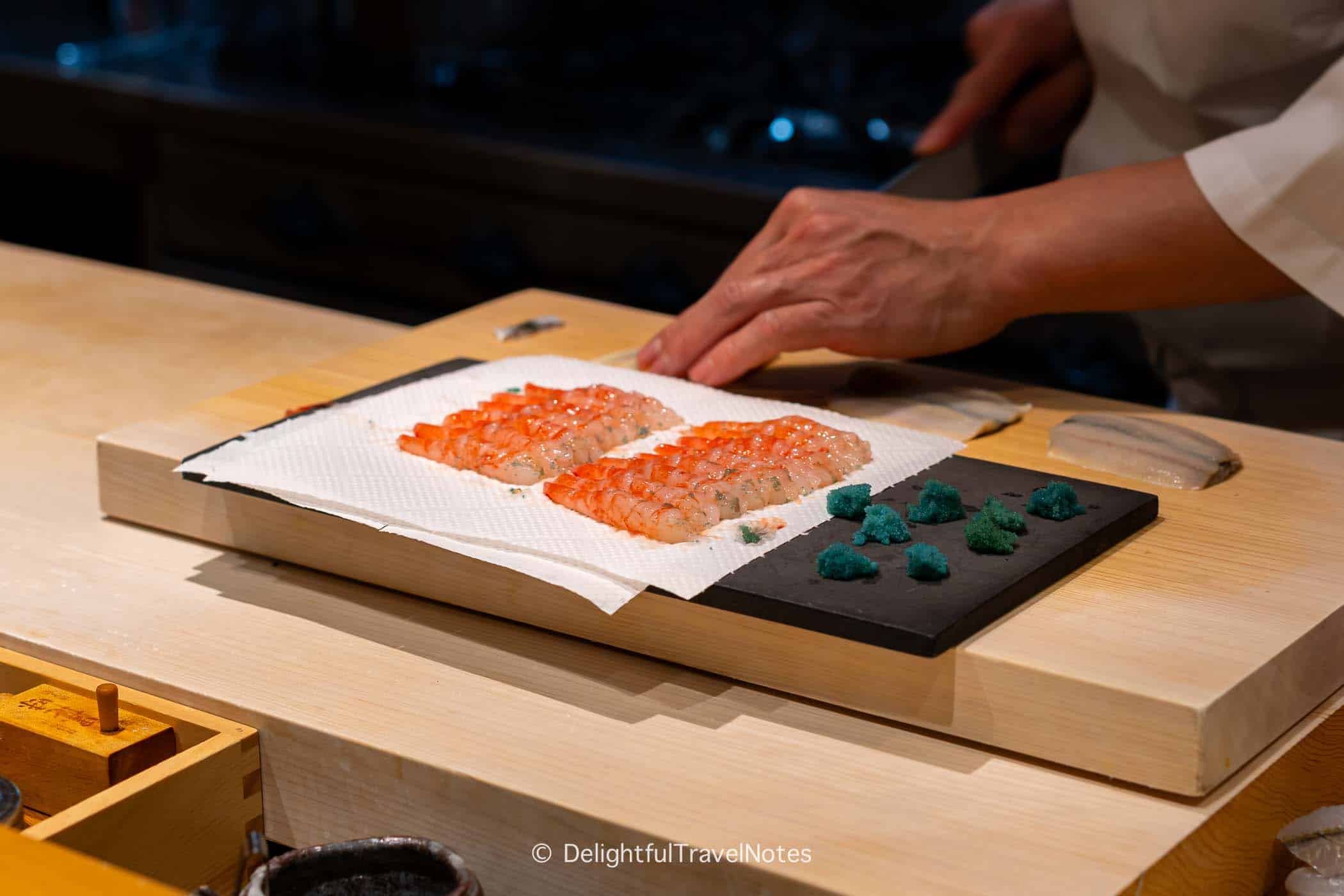
The restaurant is small and cozy with limited seating. During our dinner service, there were eight guests, all Japanese except for us. The place is run by a small team, chef Issei and a female attendant, who according to a review is his wife. Both are young and showed a friendly attitude. Despite the language barrier, they made sure to explain the names and ingredients of each dish in English, sometimes with the help of Google Translate. Their effort to make small exchanges with us, despite our limited Japanese, made the dinner more enjoyable. Overall, the atmosphere was welcoming and relaxing.
Our omakase consisted of 13 pieces of sushi and 7 small savory dishes, including chawanmushi and miso soup, ending with tea and a small dessert. While I won’t list every single dish, I’ll highlight some of the most memorable plates of the meal.
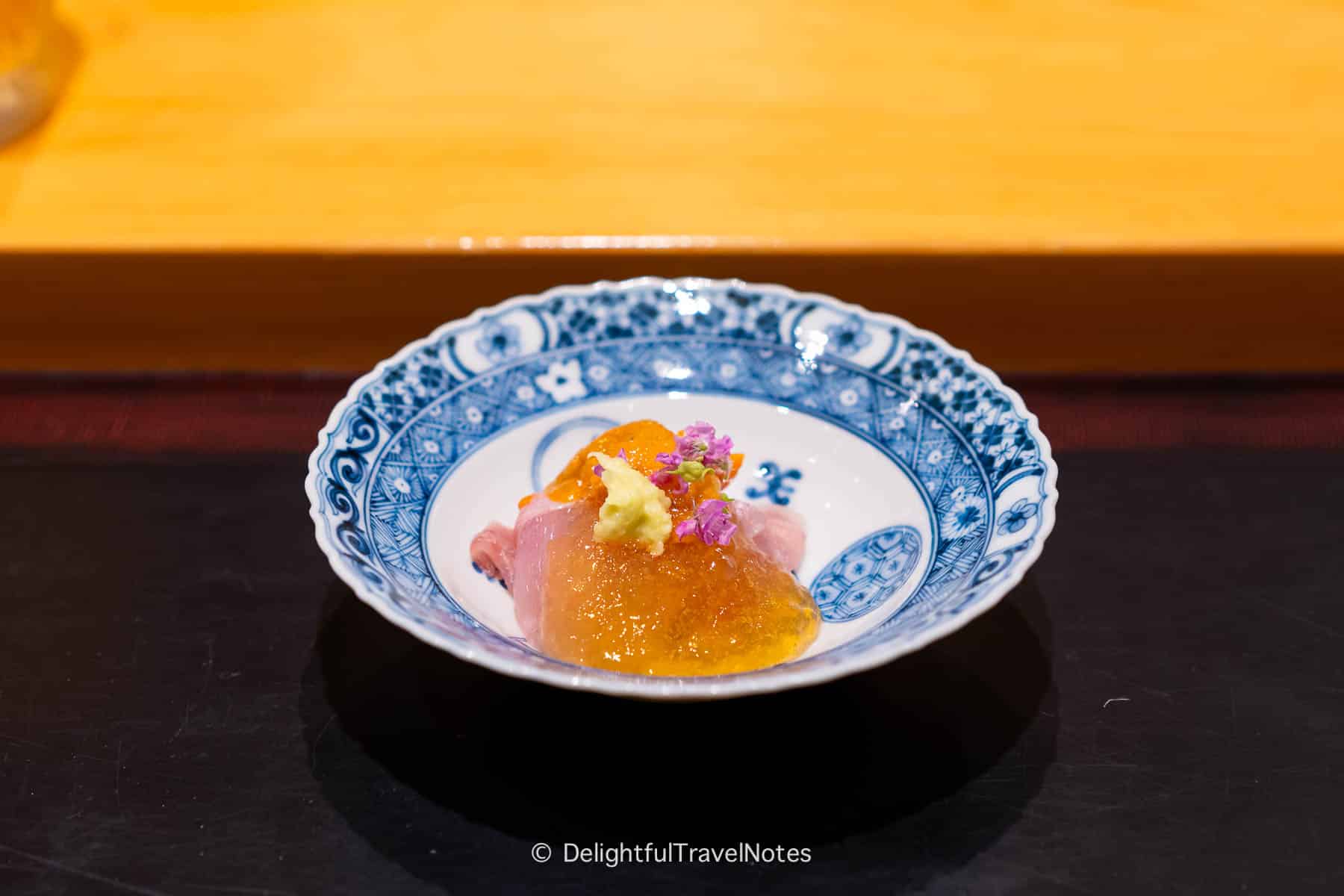
We began with a refreshing plate of uni and sashimi, served with a tangy vinegar jelly that cleansed the palate and set the tone for the evening. Over the next few courses, we were served a series of small dishes while the chef prepared the fish for the upcoming nigiri.
One of the standout dishes was the abalone, served with a rich, creamy abalone liver sauce. The abalone itself was tender and succulent, with the sauce providing a deeply flavorful accompaniment. Another highlight was the crab chawanmushi, which featured sweet, delicate meat from kegani (hairy crab) atop a light, silky egg custard. It was a simple dish, yet the flavors lingered on the palate. Very strong start to the meal!
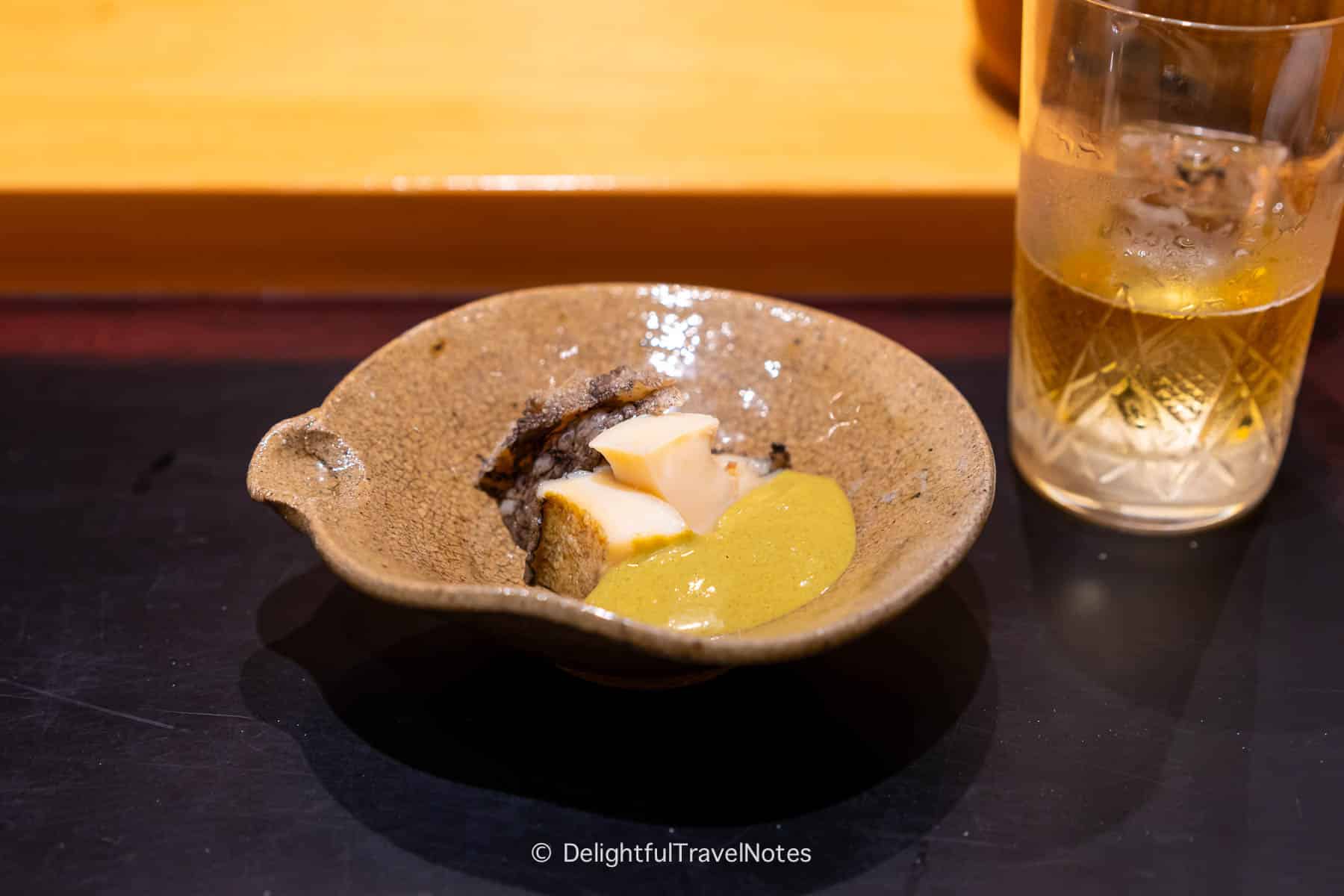
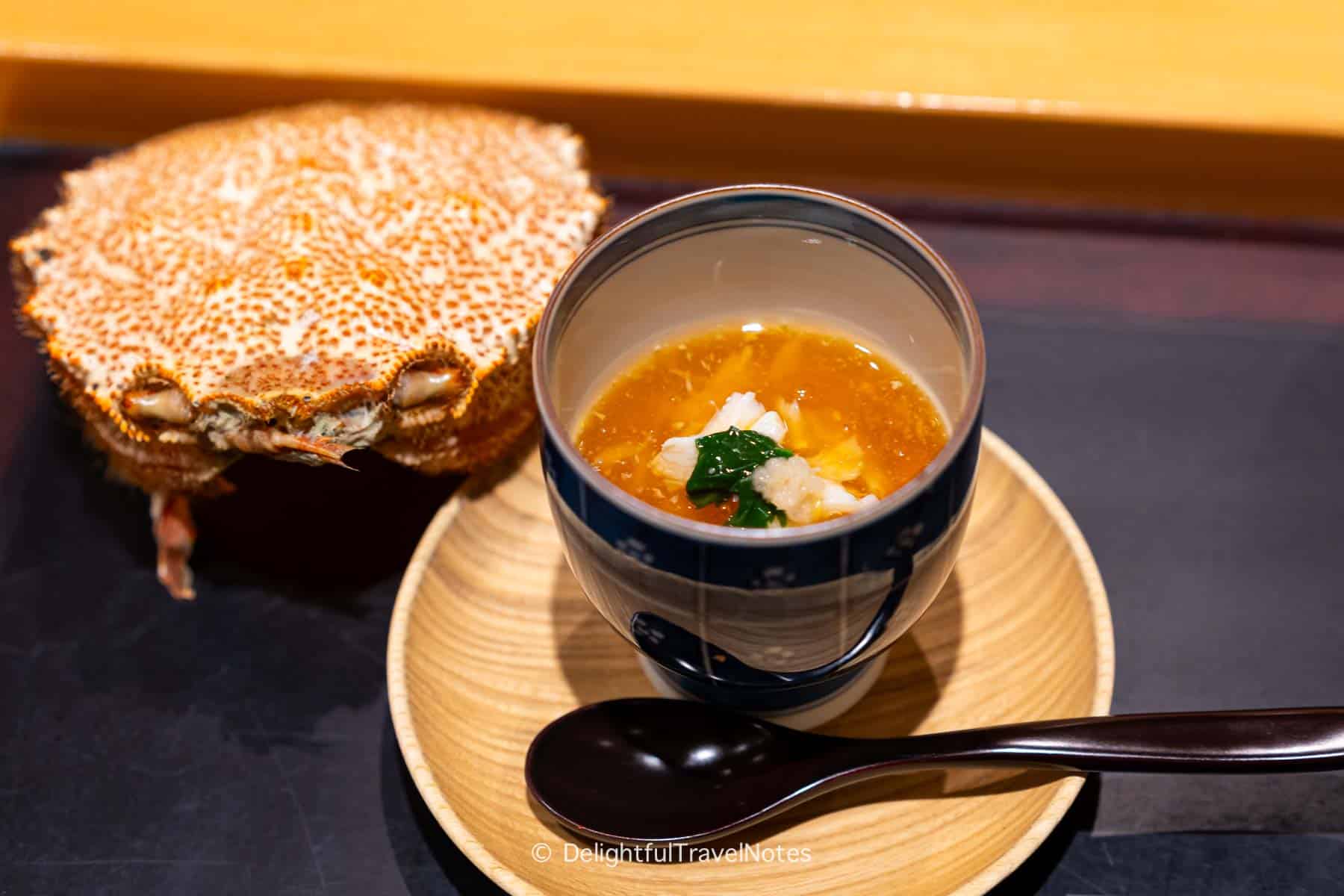
After the chawanmushi, chef Issei started serving nigiri for all guests. The first piece served was amaebi (sweet shrimp), which immediately became my favorite of the night. The shrimp was incredibly fresh with a plump and juicy texture. It was bursting with sweetness that was complemented very well by the vinegared rice.
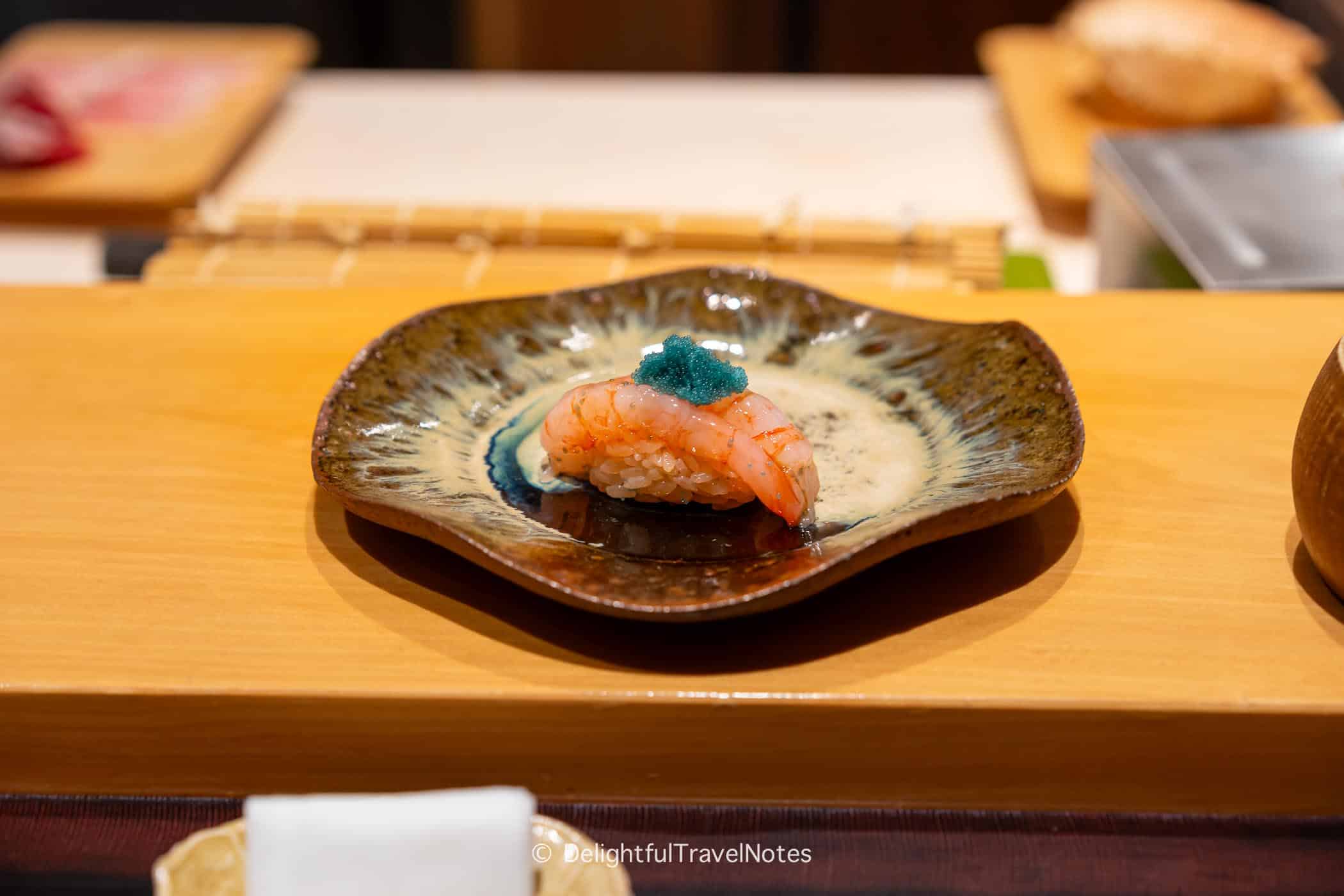
Other memorable pieces included the toro (fatty tuna), akami (lean tuna), uni (sea urchin), and kuromutsu (black gnomefish). Each nigiri looked beautiful, with the fish slices glistening and expertly cut. The rice was a highlight in itself – plump, shaped with enough pressure to hold together without being too compacted. We particularly enjoyed the texture and the pronounced vinegar taste of the rice.
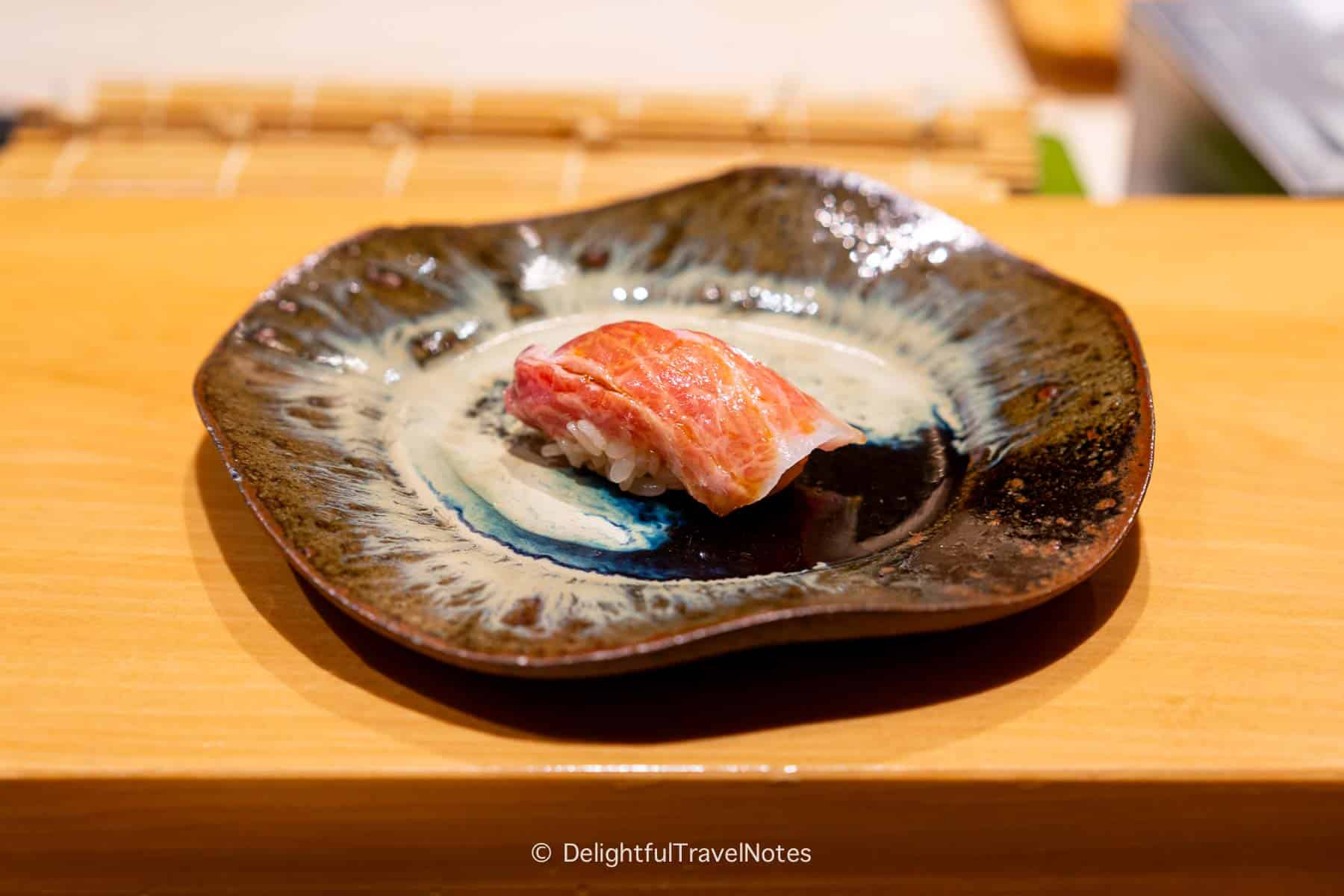
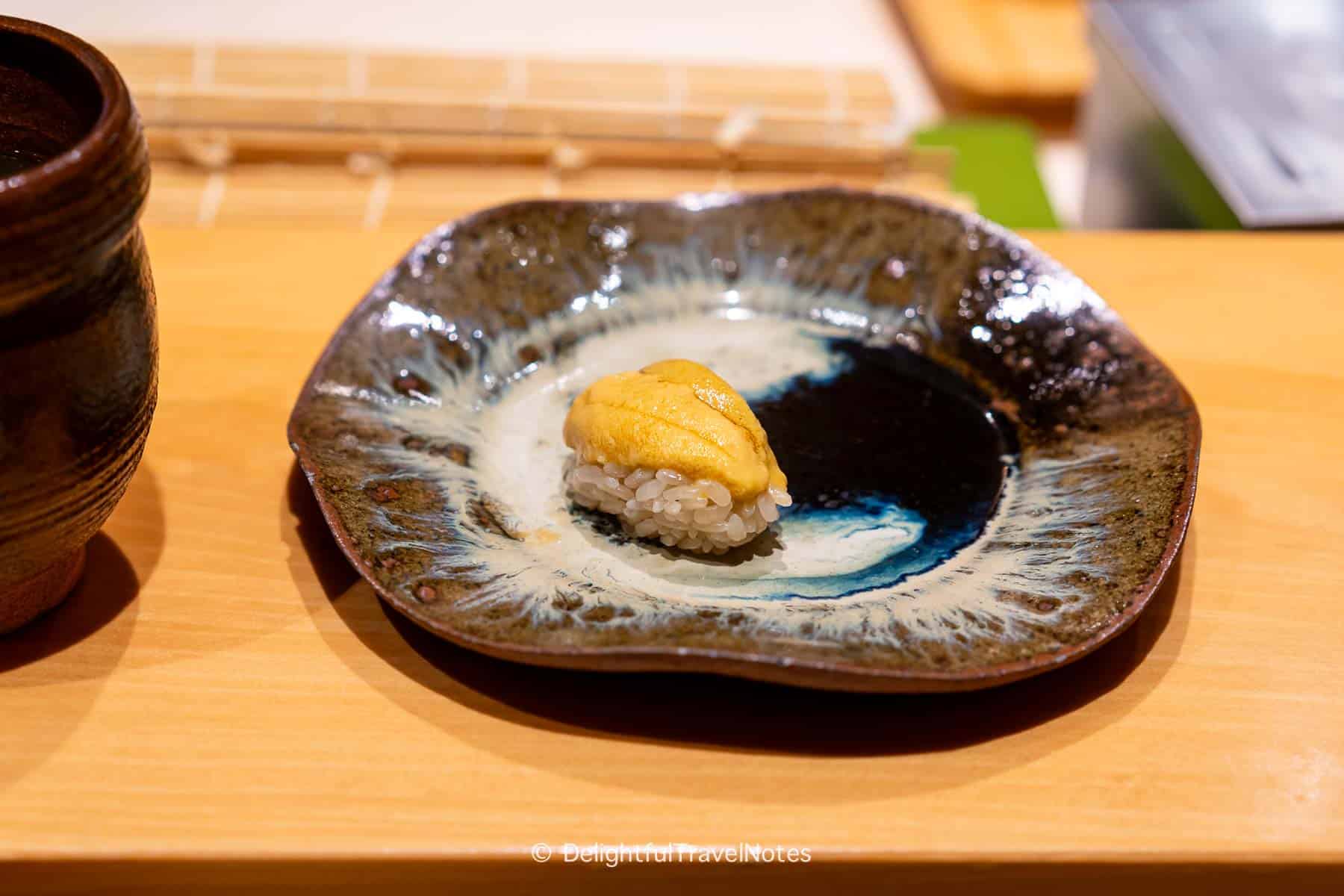
With this omakase, we were also able to taste some seafood in nigiri for the first time, such as tairagai and sayori. The meal concluded with a bold and flavorful miso soup made from shrimp stock, which was packed with umami. We also enjoyed a cup of tea and a delightful monaka ice cream sandwich for dessert. This ice cream served in a crisp wafer dish added a fun and refreshing end to the meal.
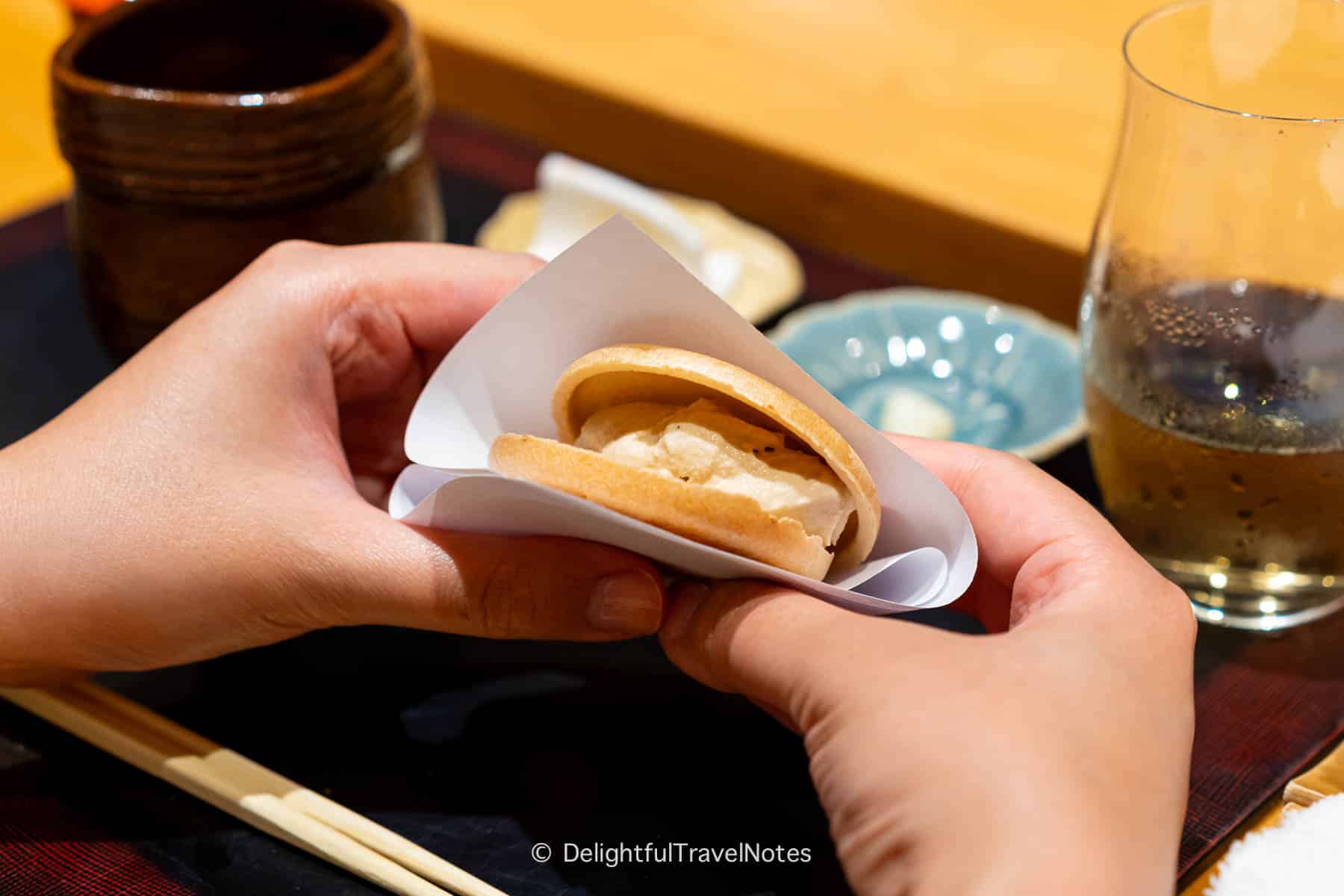
While we were happy with our dinner, two small things could have made it better: a slightly higher ratio of fish to rice in the nigiri, and the addition of nodoguro (blackthroat seaperch), which we were hoping to try but wasn’t available that night. That said, given the price point, the quality of the food and the skill in its preparation made the omakase at Sushi Issei great value for money. I wouldn’t hesitate to recommend Sushi Issei to anyone visiting Kanazawa, and we’d love to return if we find ourselves in the city again.

Explore More
The Thousand Kyoto Review: Wonderful Hotel Right Next To Kyoto Station
How To Plan An Amazing Trip to Kyoto (Beyond General Japan Travel Tips)
Top Crowded Attractions in Kyoto and How to Avoid the Masses